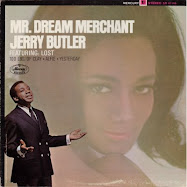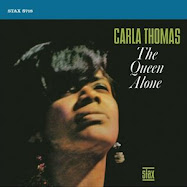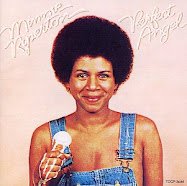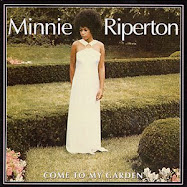Monday, May 26, 2008
Phyllis Hyman
Phyllis Hyman
Phyllis Hyman (July 6, 1949 - June 30, 1995) was an American soul singer, model and actress.
She began her career as a silky-voiced singer influenced by jazz, and gradually moved towards heavily produced urban contemporary ballads.
She is remembered as one of the premier female vocalists of her time, known for songs such as You Know How To Love Me, Can't We Fall In Love Again, Old Friend, Living All Alone and Don't Wanna Change The World. Her trademarks included chandelier earrings, dress hats and a white bugle-beaded dress. Because of her role and Tony nomination in the Broadway play Sophisticated Ladies, she is often referred to as The Sophisticated Lady.
Even though she was born in Lancaster (to an African American mother and Cuban/Italian father), Phyllis grew up in the St. Clair Village section in Pittsburgh. After leaving Pittsburgh, her music training started with a scholarship to a music school. On graduation, she performed on a national tour with the group New Direction in 1971. After the group disbanded, she joined All the People and worked with another local group, The Hondo Beat. At this time, she appeared in the film Lenny (1974). She also did a two-year stint leading a band called Phyllis Hyman and the P/H Factor. Phyllis was discovered in 1975 by internationally known pop artist and music industry veteran Sid Maurer, and former Epic Records promotion man Fred Frank, and signed to their Roadshow Records / Desert Moon imprint.
Hyman moved to New York City to work on her reputation. She did background vocals on Jon Lucien's Premonition and worked in clubs. It was during one of these performances that she was spotted by Norman Connors, who offered her a spot as a vocalist on his album, You Are My Starship (1976). Her best performance on the album is a remake of The Stylistics' Betcha By Golly Wow.
Hyman sang with Pharoah Sanders and the Fatback Band while working on her first solo album, Phyllis Hyman, released in 1977 on the Buddah label. When Arista Records bought Buddah, she was transferred to that label. Her first album for Arista, Somewhere in My Lifetime was released in 1979; the title track was produced by then-labelmate Barry Manilow. Her follow up album You Know How to Love Me made the R&B Top 20 and also performed well on the club/dance charts. Hyman's first solo Top Ten hit came in 1981 with Can't We Fall In Love Again, a duet with Michael Henderson. The song was recorded while she was performing in the Broadway musical Sophisticated Ladies, a tribute to Duke Ellington. She performed in the role for almost two years, receiving a Tony Award nomination for Best Supporting Actress in a Musical and winning a Theatre World Award for Best Newcomer. It is here that she was crowned as The Sophisticated Lady.
Problems between Hyman and her label, Arista, caused a pause in her recording career. She used the time to appear on movie soundtracks, television commercials and guest vocals, working with Chuck Mangione, Barry Manilow, The Whispers and The Four Tops. She toured often and did a college lecture tour.
In 1983, Hyman recorded the song Never Say Never Again as the title song for the James Bond movie of the same name, written by Stephen Forsyth and Jim Ryan. However, Warner Brothers informed Forsyth that Michel Legrand, who wrote the score for the film had threatened to sue them, claiming he contractually had the rights to the title song. So, the song was never released.
Free from Arista in 1985, she released the album Living All Alone, and capitalized on the torch songs Old Friend and the melancholy title track, as well as You Just Don't Know and Screaming At The Moon in 1986. Shortly after she appeared in the films School Daze and The Kill Reflex. She would also continue to lend her voice on albums for other artist and musicians like Grover Washington, Jr. and Lonnie Liston Smith, while at the same time doing international tours. Her next album, Prime of My Life, released in 1991, was the biggest of her career and included Phyllis' first number one R&B hit, Don't Wanna Change the World, along with top ten singles Living In Confusion, When You Get Right Down To It, and the hit I Found Love. Just over a year later she appeared one last time on a Norman Connors album, singing the title song Remember Who You Are, which became a minor R&B hit.
Hyman's last album, I Refuse To Be Lonely, was a journey into her personal life. Both the title track and the single I'm Truly Yours became minor R&B hits. She struggled with bipolar disorder, depression, alcoholism, weight gain and financial problems. She was also emotionally exhausted from lending her talents to AIDS benefits concerts and support groups. Adding to her sorrow, in 1993 her mother, grandmother and a close friend all died within the span of a month.
On the afternoon of June 30, 1995, Hyman committed suicide with vodka and an overdose of temazepam. She was found hours before she was scheduled to perform at the Apollo Theatre by her close beau Terrance Porter . A suicide note read, "I'm tired. I'm tired. Those of you that I love know who you are. May God bless you." It is thought that the last part of the message was for her family and fans. Phyllis Hyman was buried on what would have been her 46th birthday.
In November 1995, Hyman's posthumous I Refuse To Be Lonely, was released. Although the project had an overdrawn gestation, to combat the delay in its commercial release, Phyllis started performing the tracks, "This Too Shall Pass" and "I Refuse To Be Lonely" in concert. The delay in the album's release adversely affected Phyllis both emotionally & financially and the delay was said to be cited over "cost negotiations."
Three years after her death, a second posthumous album of previously unreleased material was released. Songs were culled from various recording sessions from the mid 1980s into the early 1990s. Forever With You (1998) contains smooth love songs, torch songs, bittersweet ballads, smooth jazz offerings and uptempo tracks, most of which showcase Phyllis' usual interpretation of heartbreak and strife. Phyllis was quoted as saying that these songs were about "relationships gone bad!" Much of the material on this album was initially intended for her Living All Alone release. It's also worth noting that the song "Funny How Love Goes" contains a posthumous "duet" featuring vocalist Damon Williams. Half of Phyllis' vocals were re-recorded with both singers alternating vocals and providing Damon Williams with exposure.
December 2003, Expansion Records, in association with The Other Artists' Entertainment (Canada), released the compilation album entitled In Between The Heartaches: The Soul Of A Diva. This album contains further previously unreleased demo recordings from the 1980s. Included are the highly anticipated McCoy Tyner tracks which remain Phyllis' most critically acclaimed recordings. Many anecdotes outlining his personal relationship with Phyllis Hyman, along with rare and insightful information about the songs is included by Michael Grimaldi, a personal and professional friend of this remarkable woman. Along with all this insightful recording information, you can also read Phyllis' own personal and candid commentary about her own "HYMANizations!
September 2007, an authorized biography was released on the late singer's life. The book entitled Strength of a Woman: the Phyllis Hyman Story, is written by Jason A. Michael in cooperation with the Estate of Phyllis Hyman.
Discography http://www.geocities.com/Heartland/Meadows/2318/phyllis_disco.html
In tribute
Norman Connors remembers Phyllis Hyman
BY STEPHANIE SHEPPARD
http://www.geocities.com/Heartland/Meadows/2318/phyllis_article3.html
Phyllis Hyman (July 6, 1949 - June 30, 1995) was an American soul singer, model and actress.
She began her career as a silky-voiced singer influenced by jazz, and gradually moved towards heavily produced urban contemporary ballads.
She is remembered as one of the premier female vocalists of her time, known for songs such as You Know How To Love Me, Can't We Fall In Love Again, Old Friend, Living All Alone and Don't Wanna Change The World. Her trademarks included chandelier earrings, dress hats and a white bugle-beaded dress. Because of her role and Tony nomination in the Broadway play Sophisticated Ladies, she is often referred to as The Sophisticated Lady.
Even though she was born in Lancaster (to an African American mother and Cuban/Italian father), Phyllis grew up in the St. Clair Village section in Pittsburgh. After leaving Pittsburgh, her music training started with a scholarship to a music school. On graduation, she performed on a national tour with the group New Direction in 1971. After the group disbanded, she joined All the People and worked with another local group, The Hondo Beat. At this time, she appeared in the film Lenny (1974). She also did a two-year stint leading a band called Phyllis Hyman and the P/H Factor. Phyllis was discovered in 1975 by internationally known pop artist and music industry veteran Sid Maurer, and former Epic Records promotion man Fred Frank, and signed to their Roadshow Records / Desert Moon imprint.
Hyman moved to New York City to work on her reputation. She did background vocals on Jon Lucien's Premonition and worked in clubs. It was during one of these performances that she was spotted by Norman Connors, who offered her a spot as a vocalist on his album, You Are My Starship (1976). Her best performance on the album is a remake of The Stylistics' Betcha By Golly Wow.
Hyman sang with Pharoah Sanders and the Fatback Band while working on her first solo album, Phyllis Hyman, released in 1977 on the Buddah label. When Arista Records bought Buddah, she was transferred to that label. Her first album for Arista, Somewhere in My Lifetime was released in 1979; the title track was produced by then-labelmate Barry Manilow. Her follow up album You Know How to Love Me made the R&B Top 20 and also performed well on the club/dance charts. Hyman's first solo Top Ten hit came in 1981 with Can't We Fall In Love Again, a duet with Michael Henderson. The song was recorded while she was performing in the Broadway musical Sophisticated Ladies, a tribute to Duke Ellington. She performed in the role for almost two years, receiving a Tony Award nomination for Best Supporting Actress in a Musical and winning a Theatre World Award for Best Newcomer. It is here that she was crowned as The Sophisticated Lady.
Problems between Hyman and her label, Arista, caused a pause in her recording career. She used the time to appear on movie soundtracks, television commercials and guest vocals, working with Chuck Mangione, Barry Manilow, The Whispers and The Four Tops. She toured often and did a college lecture tour.
In 1983, Hyman recorded the song Never Say Never Again as the title song for the James Bond movie of the same name, written by Stephen Forsyth and Jim Ryan. However, Warner Brothers informed Forsyth that Michel Legrand, who wrote the score for the film had threatened to sue them, claiming he contractually had the rights to the title song. So, the song was never released.
Free from Arista in 1985, she released the album Living All Alone, and capitalized on the torch songs Old Friend and the melancholy title track, as well as You Just Don't Know and Screaming At The Moon in 1986. Shortly after she appeared in the films School Daze and The Kill Reflex. She would also continue to lend her voice on albums for other artist and musicians like Grover Washington, Jr. and Lonnie Liston Smith, while at the same time doing international tours. Her next album, Prime of My Life, released in 1991, was the biggest of her career and included Phyllis' first number one R&B hit, Don't Wanna Change the World, along with top ten singles Living In Confusion, When You Get Right Down To It, and the hit I Found Love. Just over a year later she appeared one last time on a Norman Connors album, singing the title song Remember Who You Are, which became a minor R&B hit.
Hyman's last album, I Refuse To Be Lonely, was a journey into her personal life. Both the title track and the single I'm Truly Yours became minor R&B hits. She struggled with bipolar disorder, depression, alcoholism, weight gain and financial problems. She was also emotionally exhausted from lending her talents to AIDS benefits concerts and support groups. Adding to her sorrow, in 1993 her mother, grandmother and a close friend all died within the span of a month.
On the afternoon of June 30, 1995, Hyman committed suicide with vodka and an overdose of temazepam. She was found hours before she was scheduled to perform at the Apollo Theatre by her close beau Terrance Porter . A suicide note read, "I'm tired. I'm tired. Those of you that I love know who you are. May God bless you." It is thought that the last part of the message was for her family and fans. Phyllis Hyman was buried on what would have been her 46th birthday.
In November 1995, Hyman's posthumous I Refuse To Be Lonely, was released. Although the project had an overdrawn gestation, to combat the delay in its commercial release, Phyllis started performing the tracks, "This Too Shall Pass" and "I Refuse To Be Lonely" in concert. The delay in the album's release adversely affected Phyllis both emotionally & financially and the delay was said to be cited over "cost negotiations."
Three years after her death, a second posthumous album of previously unreleased material was released. Songs were culled from various recording sessions from the mid 1980s into the early 1990s. Forever With You (1998) contains smooth love songs, torch songs, bittersweet ballads, smooth jazz offerings and uptempo tracks, most of which showcase Phyllis' usual interpretation of heartbreak and strife. Phyllis was quoted as saying that these songs were about "relationships gone bad!" Much of the material on this album was initially intended for her Living All Alone release. It's also worth noting that the song "Funny How Love Goes" contains a posthumous "duet" featuring vocalist Damon Williams. Half of Phyllis' vocals were re-recorded with both singers alternating vocals and providing Damon Williams with exposure.
December 2003, Expansion Records, in association with The Other Artists' Entertainment (Canada), released the compilation album entitled In Between The Heartaches: The Soul Of A Diva. This album contains further previously unreleased demo recordings from the 1980s. Included are the highly anticipated McCoy Tyner tracks which remain Phyllis' most critically acclaimed recordings. Many anecdotes outlining his personal relationship with Phyllis Hyman, along with rare and insightful information about the songs is included by Michael Grimaldi, a personal and professional friend of this remarkable woman. Along with all this insightful recording information, you can also read Phyllis' own personal and candid commentary about her own "HYMANizations!
September 2007, an authorized biography was released on the late singer's life. The book entitled Strength of a Woman: the Phyllis Hyman Story, is written by Jason A. Michael in cooperation with the Estate of Phyllis Hyman.
Discography http://www.geocities.com/Heartland/Meadows/2318/phyllis_disco.html
In tribute
Norman Connors remembers Phyllis Hyman
BY STEPHANIE SHEPPARD
http://www.geocities.com/Heartland/Meadows/2318/phyllis_article3.html
Monday, May 5, 2008
Sunday, May 4, 2008
Subscribe to:
Comments (Atom)










.jpg)


















